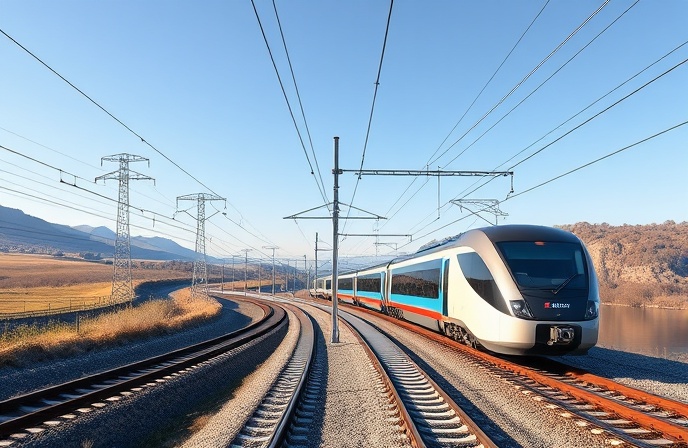CAF Acquires Alstom’s Coradia: Reshaping European Rail

This article examines the strategic acquisition of Alstom’s Coradia Polyvalent platform by CAF (Construcciones y Auxiliar de Ferrocarriles), a significant event shaping the European railway landscape. The acquisition, mandated by the European Commission (EC) as a condition for approving Alstom’s takeover of Bombardier Transportation, represents a complex interplay of regulatory compliance, industrial strategy, and market competition. This analysis will delve into the background of the deal, its implications for the involved companies, the broader European rail industry, and the future of rolling stock manufacturing. We will explore the strategic rationale behind the sale for both Alstom and CAF, assess the impact on employment and production capacity, and consider the potential effects on competition and innovation within the European railway sector. Finally, we will analyze the long-term consequences of this transaction for the future development and modernization of European railway systems.
The Alstom-Bombardier Merger and EC Conditions
The merger between Alstom and Bombardier Transportation, initially announced in 2018, faced scrutiny from the EC due to antitrust concerns. To mitigate these concerns and secure regulatory approval, Alstom was required to divest certain assets. This divestiture included the Coradia Polyvalent regional train platform, the Reichshoffen production site in France, and the TALENT 3 platform. The EC’s decision aimed to prevent the creation of a dominant player in the European rail market, thereby ensuring fair competition and protecting consumer interests. The sale of these assets, therefore, was not a purely commercial decision by Alstom, but a regulatory necessity to secure the larger merger.
CAF’s Acquisition Strategy and Market Positioning
For CAF, the acquisition of Alstom’s assets presents a strategic opportunity to expand its market share and technological capabilities. By acquiring the Coradia Polyvalent platform and the associated production facilities, CAF gains access to established designs, manufacturing expertise, and a significant customer base within the French and Central European markets. This strengthens CAF’s position as a major player in the European rail industry, enabling it to compete more effectively with other leading manufacturers. The acquisition also allows CAF to consolidate its presence in France and expand its reach into Germany and other Central European countries.
Impact on Employment and Production
The transfer of the Reichshoffen production site and associated personnel from Alstom to CAF has significant implications for employment. While CAF has expressed its commitment to maintaining the workforce, the transition period may present challenges for employees. The integration of production processes and technologies between the two companies will require careful planning and management to ensure a smooth transition and minimize disruption. Successful integration will be crucial to maintaining production levels and ensuring the long-term viability of the Reichshoffen site and the platform itself.
Competition and Innovation in the European Rail Industry
The acquisition could potentially reshape the competitive landscape of the European rail industry. While the EC imposed conditions to prevent the creation of a monopoly, the acquisition strengthens CAF’s position, potentially altering the dynamics of competition. However, the presence of other major players will ensure a competitive market. The integration of Alstom’s technology into CAF’s portfolio may also stimulate innovation and lead to the development of new and improved rolling stock designs and technologies, ultimately benefiting rail operators and passengers.
Conclusion
The acquisition of Alstom’s Coradia Polyvalent platform by CAF represents a pivotal moment in the European railway industry. Driven by EC regulatory requirements, the deal has significant implications for both companies, impacting their market positions, production capabilities, and workforce. For Alstom, the divestiture was a necessary step to finalize the Bombardier merger and address antitrust concerns. For CAF, the acquisition provides a significant opportunity for expansion and strengthening its market position, particularly in France and Central Europe. The integration process presents challenges regarding employment and production, requiring careful management to ensure a smooth transition. Furthermore, the long-term effects on competition and innovation remain to be seen. While potentially strengthening CAF’s competitive edge, the continued presence of other significant players will likely maintain a healthy level of competition in the sector. Ultimately, the success of the acquisition will depend on CAF’s ability to successfully integrate the acquired assets, maintain production levels, and innovate within the existing platform. The long-term effects on the European rail market will be a subject of ongoing observation and analysis.






